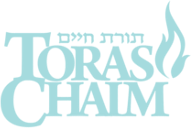Our belief in the divinity of every word of the Torah defines our mission and fuels our passion for living a fully observant life, with all the sacrifice that entails. It explains how hundreds of thousands of Orthodox Jews not so much as flick on a light on Shabbat, carefully monitor their food’s kashrut and sacrifice financial stability for the sake of their children’s Torah education.
This perspective informed Jewish learning as practiced by the Sages of the Mishnah and Talmud, by Rashi and Maimonides and by subsequent generations of Talmudic and halachic scholars and laymen. Classic Torah study was a process of exploring and analyzing the Torah as a God-given document. New situations and applications required discovery of how the divine, unchanging principles were to be applied, and these applications were endlessly debated, leading to an infinite plurality of halachic opinions. But aside from marginal movements such as the Saducees and the Karaites, within the community of Torah study there was no consideration of whether the divine, immutable principles should be rejected or changed. And this approach is alive and well in the contemporary Orthodox community, in its yeshivot, synagogues and homes.
This belief makes religious unity among today’s different streams more than challenging. While we are people of the same Book, we are not on the same page. The non-Orthodox approach to Torah functions without these cardinal assumptions, making its mandates less compelling and its principles subjective and changeable. While there are certainly religious matters we can agree upon, the basic assumptions are fundamentally different, creating a religious gap very difficult to bridge.
2. All Jews are responsible for one another; a Jew is always a Jew, even if he does not practice his faith.
It is a fundamental Jewish belief that Jews are absolutely connected to one another. This connection must express itself in an uncompromised commitment to each and every Jew’s well-being.
Orthodox Jews are avid students of Jewish history, ancient and recent. We do not study history academically, but as the story of our personal identity. We see ourselves as the children of Abraham, Isaac and Jacob, of Sarah, Rivka, Rachel and Leah. We see our past and our future in the land of Israel and raise our children on Jewish stories and on a steady awareness of current Jewish events.
As such, a large part of the foundation of our identity as Jews is not how we live our lives because we are Jews, but the appreciation of our roots and history and what makes us Jews. This is something we share with every member of our people.
The Orthodox community prides itself on its uncompromised commitment both to our Torah and to our People. I hope and pray that all of us throughout the broader community can strengthen Jewish unity by enhancing the Jewish identity and commitment of our respective communities.
This article originally appeared in The Jewish Times.
